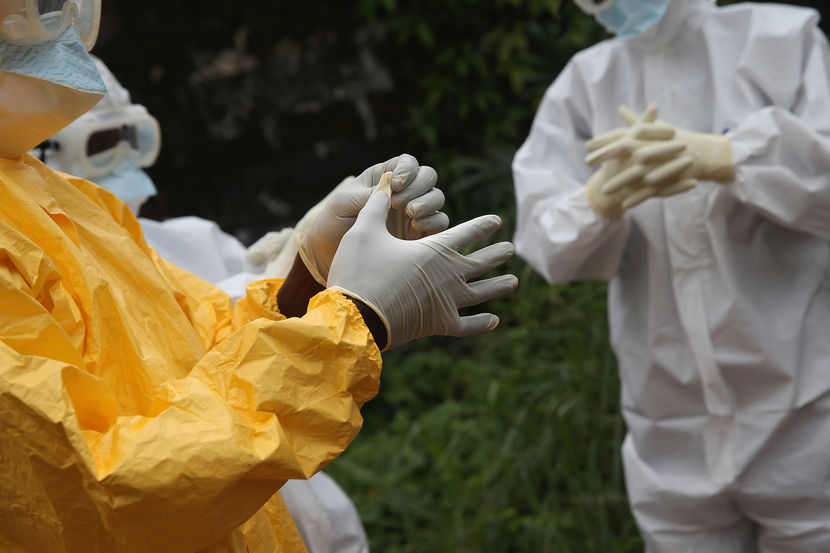The Red Cross Society in Guinea said parents have taken their children out of school in some parts of Conakry because of fears that the Society was spreading the Ebola virus on campus.
This was happening less than a month after schools reopened, Youssouf Traore, the President of the Red Cross Society of Guinea, said on Friday in Conakry.
He said parents took their children out of school, accusing Red Cross of infecting the schools with Ebola and vaccinating the children.
He, however, added that there was nothing like that because the society never entered the schools or vaccinated children.
He said “we only disinfect the homes and places where sick Ebola victims have been and then only with the permission of their family and community.’’
Traore said efforts to wipe out the deadly virus were hampered by people’s mistrust of health workers, and by the number of people still hiding sick friends and relatives from authorities, particularly in Conakry.
He noted that the school term normally starts in October in Guinea, but the government delayed the reopening of schools until Jan. 19 in an effort to contain the virus.
Meanwhile,the UN children’s agency, UNICEF, said some 47,500 kits containing buckets and soap were distributed along with 20,500 infrared thermometers, while more than 80,000 teachers received information and training on prevention.
Sayo Aoki, the UNICEF Education Specialist in Ebola Emergencies, said more than 1.3 million children returned to school in Guinea, but the UN said 70 schools across the country had been unable to open this week because of suspicions about the medical kits being distributed to students.
He said UNICEF said children dropping out of school could have a long-term impact on both their education and the ability to control the epidemic because pupils were being taught at school how to protect themselves and their families against the virus.
“From our experience in different emergency contexts, the longer children stay out of school, the less likely they are to return,”he said.
“Ebola has hit poor families very strongly, so it is possible that those poor families are more vulnerable than before and require their children to support the family economically,’’ he added.
Aoki said schools were due to reopen in Liberia on Monday and in Sierra Leone at the end of March.







